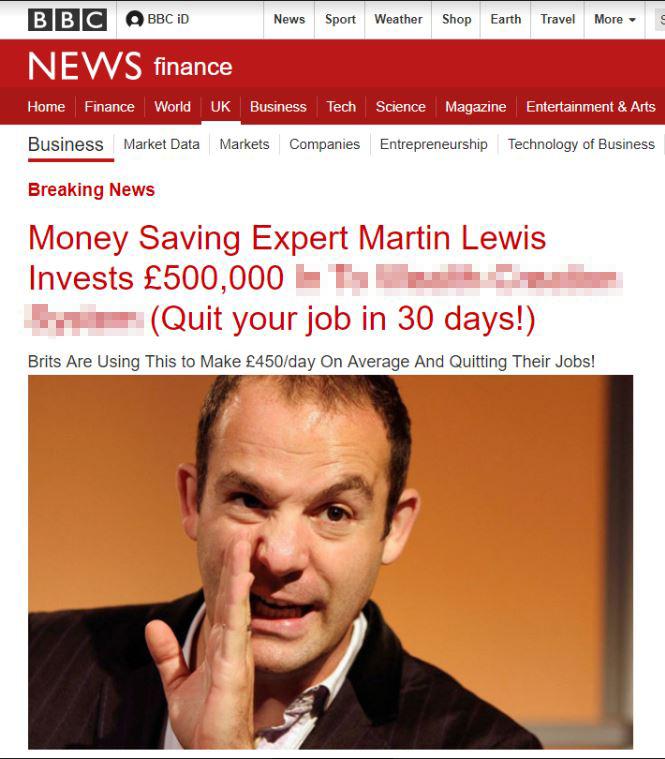Inside the murky world of Facebook scams – how fraudsters are using famous faces to con people out of cash
More than 1,600 victims lost £342 on average after being duped on Facebook last year

MILLIONS of us don't think twice about logging-on to Facebook to chat with mates and catch-up with family.
But between the pictures of our friends and family there is a lurking danger to you and your cash.
Fraudsters and crooks are after your money - and they are using ads featuring celebrities to tempt you into giving it away.
Figures released exclusively to The Sun Online show 1,639 scams were reported to Action Fraud in 2017, with the majority of those related to online shopping.
Victims on average lost £342 but in 24 cases Brits reported being scammed out of more than £10,000.
What's more these figures are just based on what's reported to Action Fraud, so it's likely there could be countless more victims who have been duped.
One household name who has tried to take on the crooks is MoneySavingExpert's Martin Lewis.
The popular money expert, who also stars in his own TV show, The Martin Lewis Money Show on ITV since September 2012, has built his reputation on the public trusting him but he has been left horrified that his image has been used on a number of Facebook and other social media scams.
In October, the Advertising Standards Agency (ASA) banned three Facebook ads from two separate companies, one which offered financial advice and the other a PPI claims firm - all three used his face.
He told The Sun Online: "Frankly, I would warn anyone to be careful about sponsored posts on Facebook.
FACEBOOK SCAMMED

ONE Sun Online reader last month told how he feared he had been scammed for £100 by a promoted Facebook advert.
Roy Thomas, 60, said he paid for an ebike after spotting an advert from a company called Dic Space.
He paid £98.99 in a "sale" but it still hadn't arrived after more than 30 days - and hadn't been able to get hold of the company.
He told The Sun Online: "It had looked like a bona fide company, and it looked very professional.
"It all looked good but after seven days it still hadn’t arrived.
"In effect, they don’t give you any actual details of the company that is going to be delivering the item, or anything to go off with that, so you can’t contact anyone.
"I’ve tried contacting the company but never received one bit of contact from them again.
"I had sent them an email saying I could pick it up, but it fell on deaf ears."
"It is the wild west where there are legitimate adverts and scores of illegitimate ones, ranging from the slightly misleading to ones which are outright scams and theft."
Mr Lewis said the ads had caused people who trust his advice to lose money, sometimes thousands of pounds.
Calling on Facebook to do more to stop the fake ads, he added: "It's outrageous.
"I can't sleep at night knowing that people are being scammed off the back of my name - the opposite of what I am supposed to be doing.
"People think there must be a way to control it but con merchants don't give a monkeys about that.
"We've reported these ads countless times and eventually they are taken down but it can take weeks and millions of people are seeing this and something needs to be done."
And it's not just Mr Lewis who has been used by scammers.
Just this week, Richard Branson's image appeared on a get-rich-quick scheme ad dealing in Bitcoin.
The ad linked through to a fake CNN page, which in turn went through to a scam site wrongly promising users they can win free Bitcoins.
Senior Tory MP Damian Collins, chairman of the Digital, Culture, Media and Sport select committee, slammed the ad.
He said: "Fake adverts displayed on social media platforms are a real problem, and one that the social media companies must tackle."
More on Scams and Fraud
In response to Mr Lewis, a Facebook spokesperson told The Sun Online: "Adverts which are misleading, false or infringe on third-party rights are in violation of Facebook’s ads policies, and we remove them as soon as we become aware of them.
"The ads that were previously reported to us by Martin Lewis have been removed and the relevant accounts disabled."
Last year it also announced it was adding 3,000 extra staff members to make sure it can respond to reports of misleading ads more quickly.
If you see a dodgy scam online, or you are a victim, you should contact Action Fraud by using its or calling 0300 123 2040.
HOW TO PROTECT YOURSELF FROM ONLINE SCAMS
ONLINE scams are a danger to both your personal details and your cash. Here are some tips you need to be aware of, according to Action Fraud.
Protect yourself - Always be suspicious. Don't assume anyone who has sent you an email or text message or has left a voice is who they say they are.
If the message asks you to make a payment, log-in to an online account or offers you a deal, be extremely cautious.
Banks will never email you for passwords or any other sensitive information by asking you to click on a link or visit a website.
Spot the signs - Always check spellings and grammar of an email or website. If it's poorly designed and contains lots of errors, the website probably isn't legit. Genuine businesses won't use web-based email addresses such as Gmail or Yahoo.
Make sure the sites are verified - Facebook, Twitter and other social media can also be used to direct you to a spoof website.
Official accounts are "verified" and come with checkmark icon next to their name - so make sure you check.
We pay for your stories! Do you have a story for The Sun Online Money team? Email us at money@the-sun.co.uk or call 0207 78 24516














